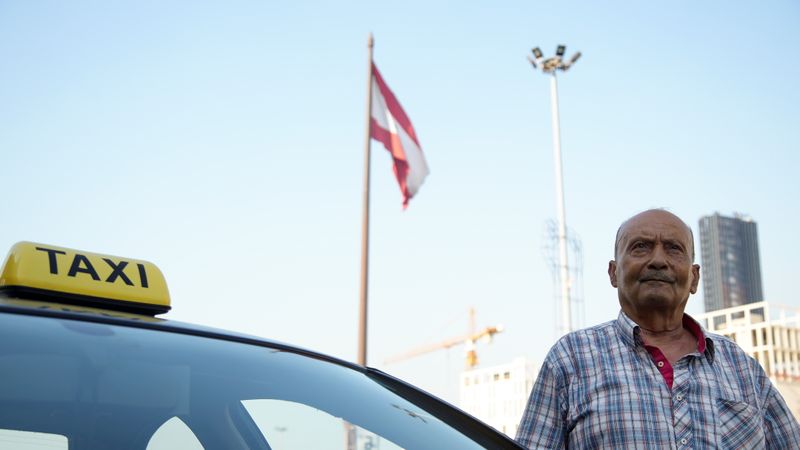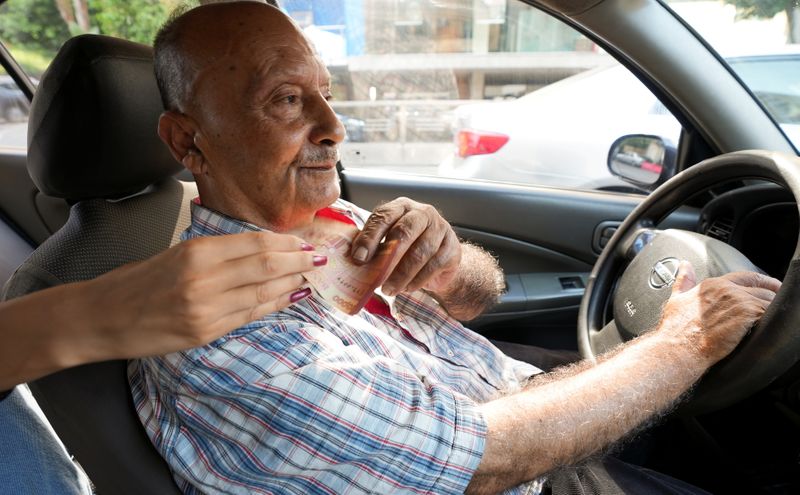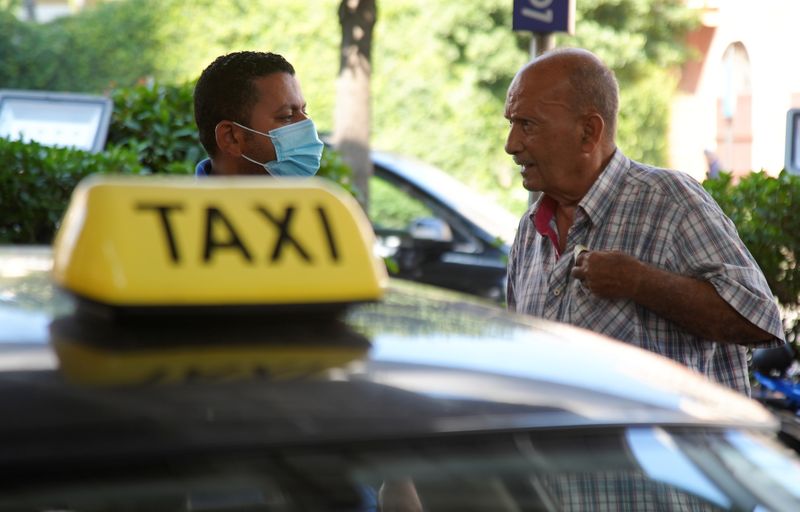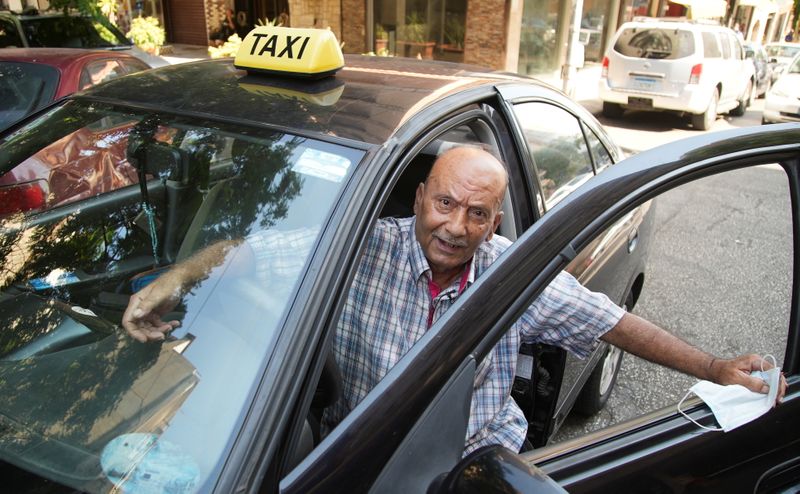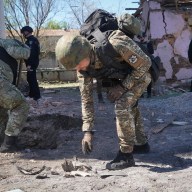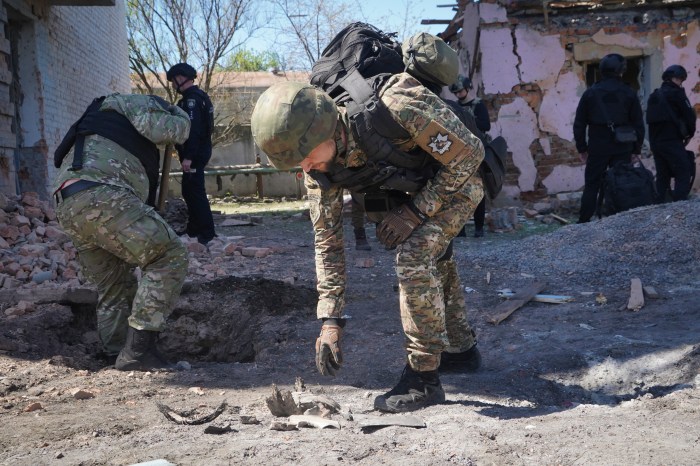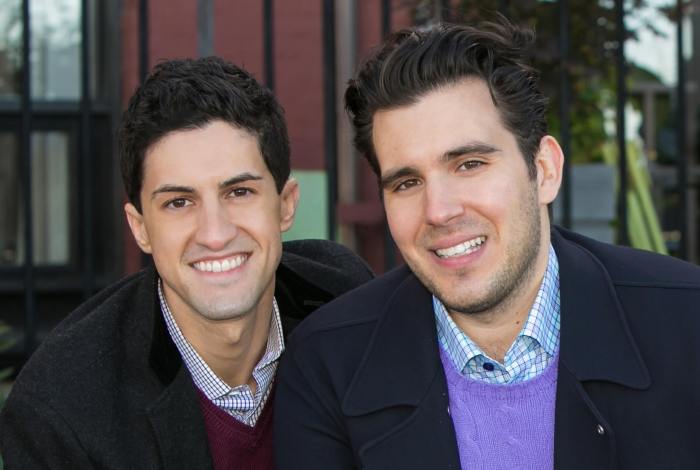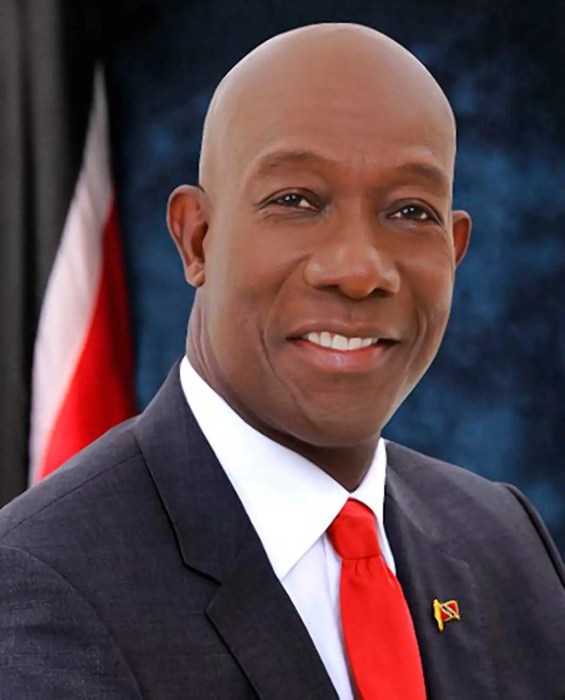BEIRUT (Reuters) – Zakaria Ghalayeeni has driven a taxi around Beirut since he was 18-years-old and at 76 he is still driving to earn a meagre living through what he says are Lebanon’s darkest times.
“We have never felt this humiliation before, not even during the civil war,” Ghalayeeni said as he joined a queue for gasoline that was likely to stretch for hours.
Lebanon is in the throes of a financial crisis. Its currency has lost more than 90% of its value in almost two years and more than half of the population has been propelled into poverty.
Shortages of basic supplies like fuel mean motorists queue for hours to get barely any petrol at the end of their long wait, something which makes Ghalayeeni’s life a daily struggle.
Ghalayeeni leaves his house at 7:30 a.m. and drives around most of the day.
When he first started out as a teenager, a taxi ride was worth 1 pound. But even though a ride now is around 10,000 pounds, he only earns between 50,000 and 100,000 pounds a day.
Before the crisis that translated into almost $70 but it is less than $5 at the current street rate.
“This car is of no use anymore, it only eats and drinks and requires fixing, more than that nothing,” he said.
As he waits in Beirut’s central Martyrs’ Square for any client to call him, Ghalayeeni ponders the quiet in an area which was once buzzing with life.
“There were people on top of people, now there is nothing, no taxis, no one, it is just empty,” he said.
But regardless of the endless lines for gasoline and the shortage of customers, he carries on – he has no alternative income.
His only companion as he waits is a picture of his late wife, who died five years ago, that he keeps on his dashboard.
In keeping with an Arab custom observed at funerals and other testing times, he has stopped taking sugar in his daily coffee.
“The cup of coffee will stay bitter like this life,” he said.
(Reporting by Issam Abdallah, Writing by Maha El Dahan; Editing by Alison Williams)

